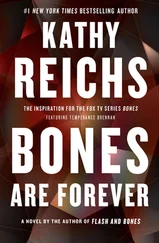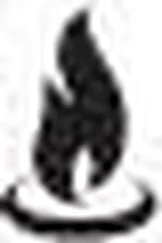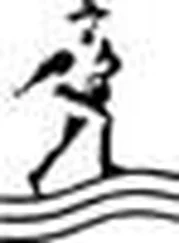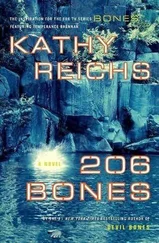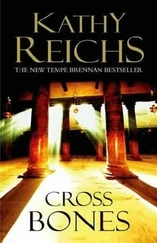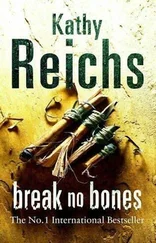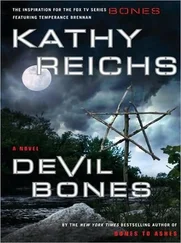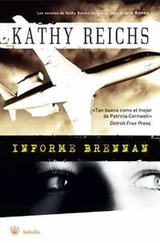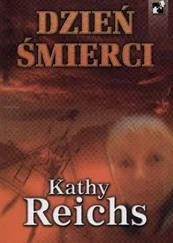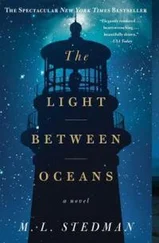“How’d you finger Gross for the doer? He was never on our radar.”
“His tattoo.”
Slidell’s brows floated up in question.
“I saw it at the Article 32 hearing at Camp Lejeune. But only part of the lower half, below his cuff, so I got it wrong. I thought it said RIP, meaning rest in peace.”
“No better friend, no worse enemy.”
It surprised me that Slidell knew a Corps slogan.
“Except Gross is a disgrace to the military,” I said.
“Fuckin’ A. He ain’t what marines are about.”
I wondered if Slidell had history with the Corps unknown to me. Was sure I wouldn’t ask.
“Anyway, I saw the tattoo again in the tavern snapshot of John-Henry Story and Dom Rockett, but it didn’t register. The image was reflected in a mirror, so everything was reversed. When I was going over photos Thursday night, it suddenly clicked. I’d seen the Task Force Ripper patch hanging in Rockett’s living room. RIP. Ripper. Gross was the guy shooting the pic. That connected him to Rockett and Story.”
“I hear you.”
“I checked the Article 32 charge sheet, saw that Gross’s middle initial was H. Henry. Then I confirmed that his mother was born Marianna Story. John-Henry Gross was the nephew of John-Henry and Archer Story. After that, it all started tumbling.
“Gross was on his fourth deployment to Afghanistan. I compared the photo I’d found in my backpack to the one I’d taken of the hit-and-run victim. Our Jane Doe’s hair had been bleached, but it was definitely the same kid. Also in the shot was Khandan, the girl who spoke to me at Bagram. When I looked carefully, I could identify a distinct rock formation behind the village of Sheyn Bagh.”
“The place you dug up the bones.”
“Yes. That’s when it all made terrible sense. The man I had helped at Camp Lejeune had in fact murdered Aqsaee and Rasekh. Aqsaee had seen Gross take Ara away. When Aqsaee recognized Gross at the cordon-and-knock he ran toward him yelling ‘Ara,’ not ‘Allah.’ Gross panicked and used the firefight to gun him down. Rasekh as well.”
“You think this kid Khandan slipped the Polaroid into your backpack?”
I nodded. “Shortly after she approached me we spent time sitting side by side in a bunker.”
“Who snapped it?”
“We may never know that.”
“How’d Khandan come to have it?”
“No idea. But she must have treasured that photo. She’d put the thing in a plastic sleeve.”
I was about to ask a question when Slidell beat me to it.
“How’d Ara come to have John-Henry Story’s US Airways club card?”
“Has Archer commented on his brother’s involvement with the massage parlors?”
“He claims to know shit.” Dripping with disgust. “But Mrs. Tarzec said John-Henry had been a regular customer.”
“Maybe John-Henry dropped the card. Maybe Ara lifted it from him. For whatever reason, she kept it.”
“Good thing. That hunk of plastic was our first leg up.”
For a beat we both gnawed on that. Then, “You sure Story died in that fire?”
“Larabee reviewed the entire file,” I said. “He still feels confident about the ID.”
For several moments we watched orange tendrils twist and curl behind the filigreed brass. Charlie used the interlude to squawk one of his favorites.
“I want your sex!”
Slidell’s eyes stayed on the flames. I felt compelled to explain.
“It’s a line from an old George Michael song.”
“Tell me this.” Slidell looked my way. “How’d you know to go to that warehouse?”
“An inspired guess, really. Larabee found a sliver of ivory embedded in Ara’s scalp. Not many uses of ivory these days, but it was once common on piano keys. Impact against a keyboard explained the patterned injury on Ara’s shoulder.”
Slidell hitched his shoulders. And?
“The FBI report listed difluoroethane among the ingredients in the smear on Ara’s purse. Difluoroethane is a propellant added to aerosol paints.”
Again the shoulders.
“The warehouse across from John-Henry’s Tavern was supposed to be converted into lofts, but the project never went forward. So it was empty. The day we talked to Sam Poland, I saw an old piano on the loading dock.”
“Spray-painted with graffiti.” Slidell snapped a finger and pointed it at me. “Not bad, doc. And by the way, that’s the last time you go swanning off after one of your hunches without me. I’m the detective. You’re the anthropologist.”
“Noted.”
Slidell nodded sharply, as though he’d scored a point.
“Ara must have been at the warehouse the night she died,” I continued. “As Majerick tried to force her into his truck, she probably struggled, and her head and shoulder struck the piano.”
My mind flashed an image of the Huma-Majerick silhouette wrestling in the dark. Another of a hatted corpse.
“Rockett was never part of the trafficking, was he?” I asked.
“Dew’s getting the whole story, but it looks that way.”
“Why did he lie about knowing John-Henry?”
“The guy was a dick, but he probably suspected something. He was a customer at the Passion Fruit, must have noticed that the girls didn’t speak English. He had to wonder where they came from.”
Slidell slipped the faux Ray-Bans onto his nose.
“We’re gonna need you to write all this up.” He gestured at my cast. “When you’re good.”
I smiled and lifted both hands. “No problem. I’m amphibious.”
Either Slidell missed the reference to the Charles Shackelford amphibious-ambidextrous gaffe, or he didn’t get the humor. I let him out with a promise to e-mail a statement.
When Slidell had gone, a shocking realization struck.
Dirty Harry hadn’t once chastised, ridiculed, or laughed at me.
An hour later, Dew showed up. He was wearing a black suit, blue tie, and eye-blistering white shirt. Still no fedora.
Dew and I assumed the same chair and sofa positions as during my visit with Slidell. Unlike Skinny, Dew sat ramrod straight with heels together, enormous hands cupping enormous knees. He declined my offer of coffee or tea.
Dew had the following to report.
Early in his second deployment, John-Henry Gross hooked up with a French private security contract worker named Jean Pruet. Pruet had spent six years in Afghanistan, and, over that period, deposited almost $2 million in a Swiss account. Pruet was returning to Europe, and, for a fee, rolled his network over to Gross.
The scheme was far from original. But it was lucrative.
Central to the operation was an Afghan national named Maroof Hayel, the man I’d seen reprimanding Khandan the day she approached me at the Bagram shops. Hayel was Khandan’s father and Ara’s uncle.
Hayel recruited young girls by promising them, or their parents, jobs in the United States. He drew mostly from the slums of Kabul, Charikar, and Jalalabad, but also from villages in the surrounding provinces.
Hayel was paid $200 for each girl he delivered. A Photoshop whiz kid in Kabul supplied false passports and visas at $40 a pop. The girls were escorted from Khwaja Rawash Airport in Kabul to Washington Dulles by an Afghan woman named Reja Hamidi. Each ticket cost around $1,600.
The girls were met by Mrs. Tarzec or one of her counterparts and driven to various locations in North Carolina. John-Henry Story paid his nephew $50,000 for each “employee” supplied, no questions asked.
“Counting round-trip tickets for Hamidi, Gross’s outlay was less than five thousand dollars per girl.” I couldn’t keep the loathing from my voice. “Placing his profit at roughly forty-five thousand dollars per transaction.”
“Yes. Pruet had made approximately the same sending them to France.”
Читать дальше

